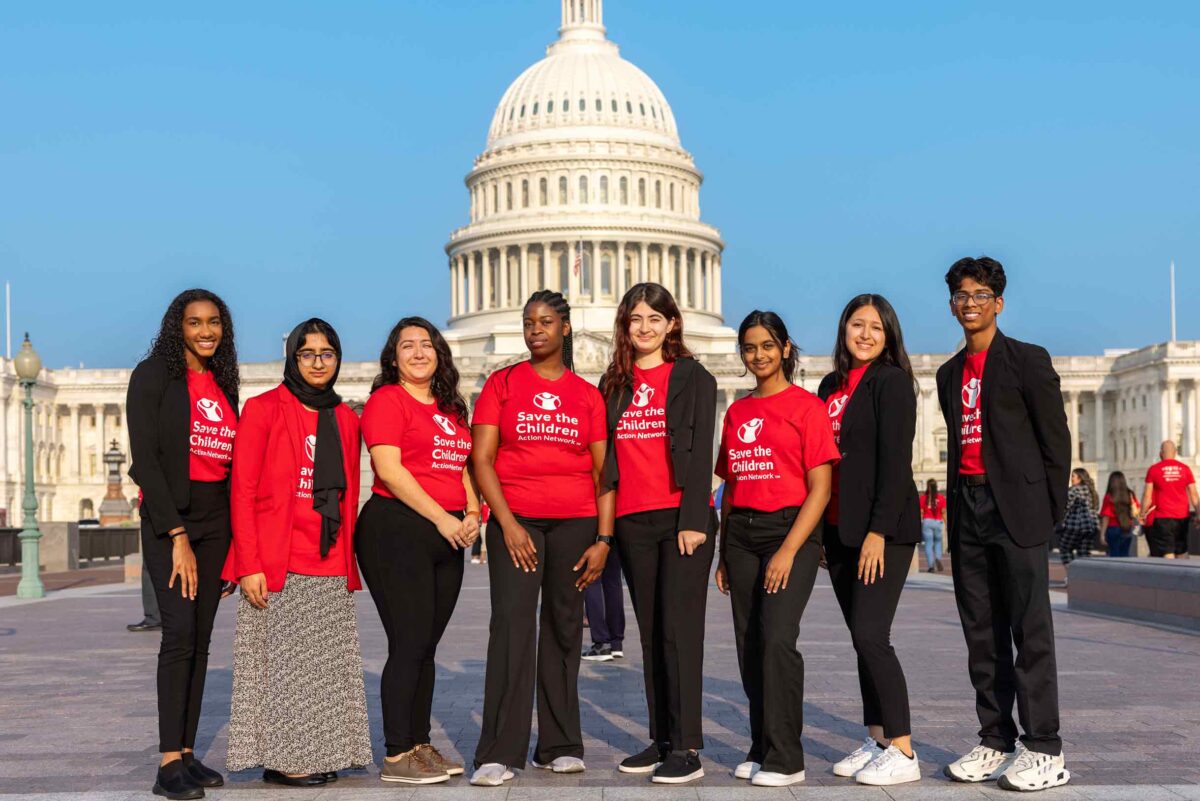Save the Children Action Network Applauds Election of Spanberger, Bipartisan Slate of Champions for Virginia’s Kids
November 4, 2025
RICHMOND, VA (November 4, 2025) – Save the Children Action Network (SCAN) – the political voice for kids – celebrates Governor-elect Abigail Spanberger and our bipartisan slate of House of Delegate candidates elected Tuesday who are committed to ensuring every child in the Commonwealth of Virginia has the opportunity to learn, grow and thrive.
“Governor-elect Spanberger’s victory – and the election of other House of Delegate candidates who share her commitment to early learning and ending child hunger – is a win for Virginia’s children and families,” said Marley Pulido, SCAN’s senior director of state and electoral campaigns. “Their leadership offers real hope that Virginia can chart a new course for children – one that transcends politics and reflects a shared truth: investing in kids is investing in Virginia.”
“Virginians want their elected leaders to come together to deliver results for working families – by expanding access to affordable child care, protecting programs like SNAP and school meals and making early learning a top priority,” Pulido continued. “More than 12,000 Virginia children remain on a child care waiting list, and over 70% of kids under age six have working parents. Families can’t thrive when care is out of reach.”
In addition to endorsing Spanberger for governor, SCAN supported a bipartisan slate of House of Delegates candidates who are champions for early childhood education and child nutrition. As election results continue to come in, SCAN celebrates the victories of:
- Adele McClure (D – District 2)
- Elizabeth Bennett-Parker (D – District 5)
- Elizabeth Guzman (D – District 22)
- Ellen Campbell (R – District 36)
- Terry Austin (R – District 37)
- Lily Franklin (D – District 41)
- Terry Kilgore (R – District 45)
- May Nivar (D – District 57)
- Shelly Simonds (D – District 70)
- Jessica Anderson (D – District 71)
- Destiny LeVere Bolling (D – District 80)
- Kimberly Pope Adams (D – District 82)
- Nadarius Clark (D – District 84)
- Kelly Fowler (D – District 96)
- Anne Ferrell Tata (R – District 99)
Background
SCAN launched its 2025 Virginia electoral program earlier this year to elevate children’s issues in one of the nation’s most competitive off-year elections. The program included a comprehensive paid and grassroots campaign, reaching voters across the Commonwealth through:
- Digital advertising, direct mail, and texting campaigns.
- Volunteer-driven voter contact and education efforts.
- Collaboration with parent advocates and community leaders to highlight candidates’ records on child care and nutrition.
SCAN reached approximately 180,000 voters during Virginia’s 2025 election cycle through digital, mail and direct contact programs, educating and encouraging them to support candidates who put kids first.
“We’re proud to have helped elect leaders across party lines who will prioritize early learning, expand access to affordable child care and ensure no child in the Commonwealth goes hungry,” Pulido said. “We look forward to working with Governor-elect Spanberger and our partners in the General Assembly to continue making Virginia the best place in America to grow up.”
About Save the Children Action Network (SCAN):
Save the Children Action Network is committed to ensuring every child has a strong start in life. SCAN mobilizes grassroots advocates, supports bipartisan leaders, and advances policies that expand access to early learning and end child hunger in the U.S. and around the world.


